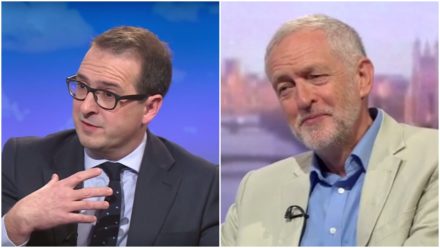
I joined the Wembley South Young Socialists just before my 16th birthday in 1960. I had started work in 1959 and was recruited to the then Association of Scientific Workers at the end my first week, when I gave the shop steward at the Chester Beatty Research Institute in London 6d from my pay packet containing £2.12/6d. My Uncle Dave in Harlow was active in the Plumbers’ Trade Union and the Labour Party, so I knew about both the party and unions (my uncle and Auntie Nannie both served as Labour councillors in Harlow).
In those early years I learnt to keep minutes, write letters, chair meetings, how to fight local elections and rooted my socialism in liberty and a passion for local democracy, which has enabled me to work with people of different political perspectives ever since. This last point is important and at the heart of what I want to say.
At 21 I married and a couple of years later was elected chair of the then Harrow West constituency Labour party. By the time I was 26, I was a Labour councillor in Birmingham. At the end of my second term life had moved on and I was in Nottingham, where I served as a county councillor from 1981 until 1985, by which time my wife (also a party member) and I were publishing a national periodical about local history, which we did until 2006.
I was very lucky in that I got to chair two regional bodies (the then Midlands Area Museum Service and East Midlands Airport), plus youth and community committees on both councils. In 2014, on reaching 70, I decided to give up all committees and become a foot soldier, just delivering and, with my wife, taking numbers at our local polling station on election days. The latter is something I have always enjoyed, being the face of Labour, wearing my rosette and greeting people I know or who are nodding acquaintances. I have many happy memories of such days and hope for a good few yet.
My three oldest friends were all young socialists at the same time as me. One is still active in Greenwich, another now in Birmingham rejoined in January after a gap of 30 years and the last, who lives in Gainsborough, describes himself as a “Green Party supporter who votes Labour”.
I share all these things with you because the Labour Party has been an important part of my life — as it has for many who will read this contribution to the leadership debate. The Labour Party has always been described, fairly I believe, as a broad church. I suspect a great deal of the destructive in-fighting I have witnessed over the decades could have been avoided had the factions/egos concerned been willing to listen to one another and compromise. Right now the Labour Party desperately needs to rewire itself, with members able to work together and, equally important, with other political parties and interest groups. For the record, I have never been a member of any faction.
I watched the first Labour leadership debate in Cardiff on YouTube and saw not a hint of listening from either Jeremy Corbyn or Owen Smith. They had their scripts and were sticking to them come what may. On balance I will vote for Corbyn, warts and all, but I would like him and Smith to work out a way to share power which reflects their percentage share of votes in the leadership election.
I know and have worked with both Lilian Greenwood, the MP for Nottingham South, and her predecessor Alan Simpson. I believe both of them without question, even though they offer different takes on Jeremy Corbyn. When it comes to a leader I want a team player, a first among equals — someone not afraid to share power.
I am against a second EU referendum, but I support the idea of a one-off “progressive alliance” at the next general election with the aim of securing constitutional and voting reform both locally and nationally, based on the existing Scottish Parliament and Welsh Assembly model (it would be madness to add yet another kind of voting). I would ask Graham Allen MP, a great champion of constitutional reform over many years in Parliament, to lead the process and I would not hold a referendum to endorse the change. From this, I am sure, will come a different, better, kind of politics.
I do not want to see the Labour Party repeat the 1980s and, right now, it may be Tony Blair, irony of ironies, with his Good Friday Agreement model, who offers us a way in which we can put this impasse behind us, because without some kind of deal the Labour Party leadership election is going to make matters worse and resolve nothing.
All I ask from the Labour foothills is that both sides start talking to one another and reach some kind of power sharing agreement. The alternative I dare not think about.
Robert Howard is a Labour Party member in Beeston in Nottingham.




More from LabourList
‘Why solidarity with Ukraine still matters’
‘Ukraine is Europe’s frontier – and Labour must stay resolute in its defence’
Vast majority of Labour members back defence spending boost and NATO membership – poll